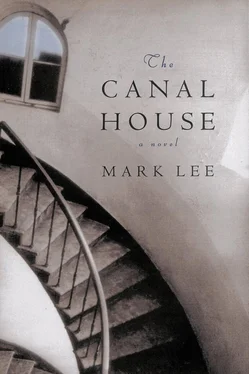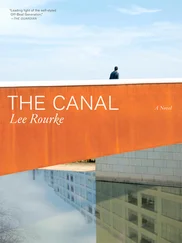“Is this a theory of your own, Mr. McFarland? You must explain it to me.”
“There are the obsessively religious. They pass out Bibles to starving people. There are the benevolently religious. They feed the natives first, then hope they’ll ask for Bibles while they’re eating. There are the professional aid workers who are in it for the money or because it looks good on their résumés. Then there are the cowboys …”
“Aren’t they usually American?”
“Cowboy aid workers like to speed around the desert in new pickup trucks and drink cattle blood with the Masai.”
I found myself smiling. “There are also cowgirl relief workers.”
“The fifth category is the confused or the incompetent—people who don’t know what to do with their life so they decide to play God in a Third World country.”
“I don’t want to be God, Mr. McFarland. It’s too much responsibility.”
“The final category of relief worker is quite rare. It’s the idealist who sees things clearly. That might be you, Dr. Cadell. Or perhaps not. There’s a certain professional air about you.”
“Cynicism is not a substitute for knowledge. Though for the misguided it can seem that way.”
“You’re right. I’m frequently misguided. But I did manage to find out that a group of Karamojong warriors got food rations from your organization, then crossed the border to steal cattle from the Turkana tribe.”
“Did Dr. Ramsey tell you that?” I asked.
“I don’t reveal my sources.”
“Are you going to put that in an article?”
“Nicky and I came here to find the Lord’s Righteous Army. I’m not really interested in writing about relief aid. The editors want pity or heroism. Usually, they cut the paragraphs where I try to give an explanation.”
I checked my watch and got up from the table. “I’m sorry. I’ve got to turn off our water pump. We don’t have enough petrol to let it run all night.”
Billy and Erik sat across from Nicky at the long table teaching him how to play a card game called Danube. Richard sat at the other end talking on his sat phone to someone in London. “Yes, we’re in the banking business,” he said. “But we’re also in the information business. You’re not exploiting the potential here.”
I slipped through the mosquito netting and stepped outside. Kerosene lanterns were burning in the medical tent and the staff tent, but the rest of the camp was dark. The motor on the repaired water pump was as noisy as a lawn mower and I headed toward the sound. I switched on my flashlight so that the Karamojong would know that I was passing through. Some of the men had been brewing homemade beer from the maize we gave them, but everyone respected the graceful fiction that no alcohol or weapons were allowed in the camp. There was an unspoken agreement that I wouldn’t search the tents and the refugees wouldn’t publicly break the rules.
Two girls were filling up plastic bottles when I reached the southern well. I touched their heads. They giggled and disappeared into the night. Kneeling beside the water pump, I felt around for leakage, then killed the motor. Silence came instantly. I switched off the flashlight, stood beside the four steel drums and saw the moon reflected on the surface of the water. Thousands of stars were visible in the sky in different shades of blue or yellowish white, each point of light glittering separate and distinct. I could hear the Karamojong talking in their tribal language and the quick, hard snap of someone breaking a branch for a fire. After eight years of working in relief camps, I still felt the strangeness of each assignment. Here I was in Africa, under the stars, and it was all quite amazing. I skimmed up some water to drink and saw the moon ripple and shimmer before me.
I switched on the flashlight again and cut across the camp to where the Acholi farmers were staying. A woman was recovering from a throat infection and I stopped by her tent. Moses Sebana, a farmer in his sixties who always carried around a Bible, came out to greet me.
“How’s Christina?”
“Very good, Dr. Cadell. There’s no more fever and she’s sleeping.”
“Did Mr. McFarland ask you questions today? Was that all right?”
Moses hesitated, and I felt as if he was considering his next statement. “Mr. McFarland said very little to us, but he spent a long time with Isaac.”
“Isaac doesn’t speak to anyone.”
“He sat beside the boy for an hour and said nothing. Then Isaac came out of his tent and looked at him. When I came back, they were talking.”
I went into Isaac’s tent. It had the pungent odor of sweat and urine. Everyone was asleep, but they woke up when the flashlight beam cut across the canvas wall. “I’m sorry,” I whispered. “Everything’s all right. Go back to sleep.” I stepped around the bodies to Isaac’s private shelter. The boy came out with his hands raised to shield his eyes from the flashlight. I switched it off and sat down on the dirt beside him. The other people in the tent shifted around and whispered to each other. A man began to snore.
“Isaac, I hear that you talked with Mr. McFarland today. Was he a nice man?”
Silence.
“What did you talk about?”
Isaac said nothing.
“Did you talk about Simon Okello and the Lord’s Righteous Army?”
I decided to wait for his answer. Four or five minutes passed before the boy spoke in a soft voice.
“I show him where they are.”
“Okello’s army?”
“Yes.”
“Why would you do that? It’s very dangerous.”
Another pause, then the child’s voice. “Wristwatch.”
“Mr. McFarland is going to give you his wristwatch?”
“Yes.”
“Well, that’s interesting.” I reached out and touched the boy’s shoulder. “Good night, Isaac. See you in the morning.”
I stepped around the sleeping bodies and pushed through the tent flap. Marching across the camp, I held the flashlight in front of me like a sword. I felt especially angry, not because I liked Daniel McFarland, but because he had made me notice him. There was something about him, some quality of his appearance or personality, that had pushed its way into my thoughts.
Back at the staff tent, Billy had just won a card game from Erik and Nicky. Richard was still on the phone and Daniel was writing in his notebook. I approached the table and stood next to him.
“Mr. McFarland, I want you out of this camp by tomorrow morning. You can use our radio to contact Paul Rosen or a member of the staff will drive you over to Kidepo. Do anything you want. I don’t care. But be out of here by nine o’clock.”
Daniel stared straight at me with a blank expression on his face. He wasn’t intimidated or regretful. I felt like a railway stationmaster who had just told him to take another train. “I understand,” he said quietly. “We’ll leave as soon as we can.”
“There’s something going on here,” Richard said to the person in London. “Stay at the office. I’ll get back to you.” He switched off the phone and raised his eyebrows. “Is there a problem, darling?”
“We have a little boy in the camp named Isaac Adupa. He saw his parents killed by the Lord’s Righteous Army, and then they kept him as a recruit until he managed to run away. Isaac is traumatized, of course. But Mr. McFarland doesn’t care about that. He only cares about his bloody story. Mr. McFarland talked to Isaac when I wasn’t there. Tempted him with a wristwatch. And now Isaac has agreed to lead him back into the bush to find Okello.”
Daniel’s face didn’t change. I realized that he had spent his career being threatened by people who didn’t want him writing articles. Nothing I said was going to bother him; he was a professional acrobat who could fall without injury. I glanced around the tent. Nicky looked surprised. Erik Viltner was grinning as if he was going to tell us that the exact same thing had happened to him a couple of years ago on a safari with two Dutchmen. Billy watched Richard, waiting for a clue about how to react. Richard turned to him and shook his head slightly. It was a small gesture, an acknowledgment that Daniel was a tough journalist and part of the men’s club or something macho and awful like that.
Читать дальше












